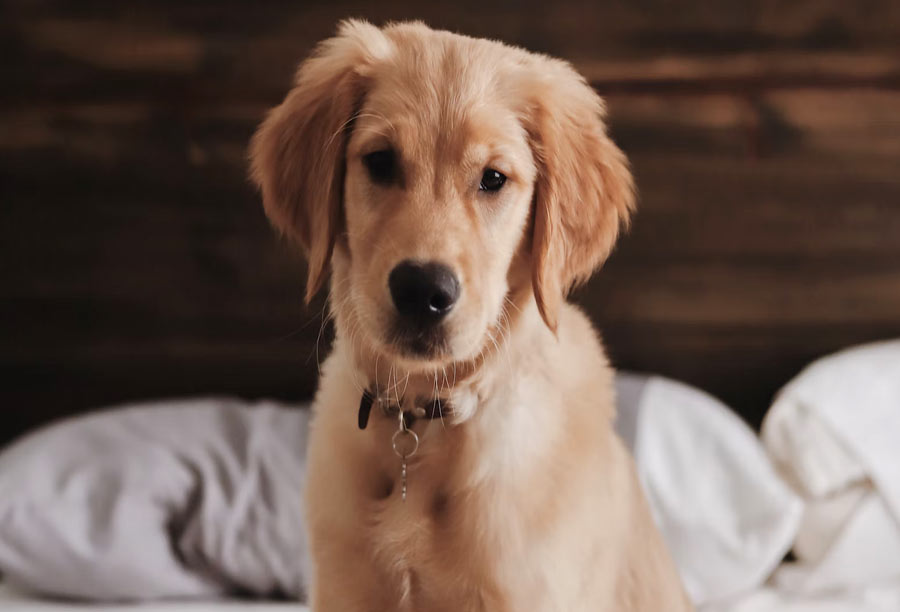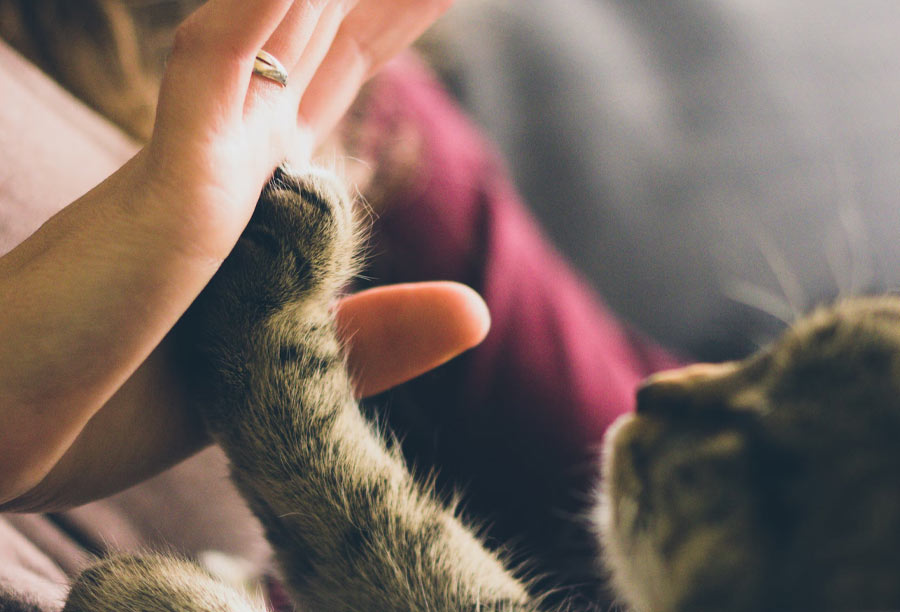Are you grieving the loss of a pet?
Understand the stages of grieving a pet and how to move on following pet loss
Have you recently lost a beloved pet? Whether it’s an unexpected loss or you’ve had to make the difficult decision of euthanising your pet, the loss of a pet can be very distressing. As humans, we tend to have high levels of attachment to our animals, and for many, our pet becomes a loyal companion. Your pet becomes part of the family, and when a family member dies, furry or otherwise, it can be devastating.
If you’re feeling distressed and struggling to move on, then you are not alone. Grieving the loss of a pet is a normal response and you do need time to heal. For some people, the grief can be prolonged and grief and loss counselling may be beneficial.
The Grief Process for Pet Loss
Firstly, it is important to know that grief is a normal response to the death of a dog, cat or other beloved pet. In psychology, it is thought that we pass through five stages of grief which can be used to explain the process of grief that occurs prior to death (when your pet has to be euthanised), or following the death.
- Denial. This is the initial stage of shock. You may experience a sense of feeling numb or wondering if you can go on with your life after your pet has died. The shock response, or ‘denial’ kicks in to help us cope and to spread out the intense feelings of grief. Gradually, as you face the reality of your pet loss, you will start to heal and the denial will eventually fade. What does this look like? You may forget you pet has died and find yourself calling out their name when you come home or buying a bag of dog food as you do your shopping. Denial may even come earlier, when you are faced with the decision of whether to euthanise your pet but you don’t want to believe their condition is at that point.
- Anger. It may sound counterproductive, but it’s actually a critical stage of the healing process. You may feel angry at yourself, your pet, your partner, friends or family, or the veterinarian. It’s okay to feel angry, because underneath that anger, is pain. It is natural to feel empty or abandoned when your pet dies. It shows how much you really cared about your pet.
- Bargaining. In this stage, you may feel desperate to stop your pet from dying or want to bring your pet back to life. You may bargain with yourself or with a higher spiritual power (like God) so that life can return as it once was. This may also be a time when you question all the ‘what if’s’ that surround your pet’s death. What if I brought my dog to the vet sooner? What if I noticed my cat’s tumour earlier? In this stage we remain in the past, trying to find a way out of the present hurt.
- Depression. When we move into the present moment, then we are faced with the feeling of grief at a deeper level. It may feel as though this stage will last forever. You may feel empty, or living in a fog of sadness. In this stage, people who have lost a pet, may withdraw from friends and family and feel there is no more joy in life. Depression following the death of a pet, is not a sign of a mental illness, in fact, it is a completely appropriate response.
- Acceptance. This stage does not necessarily mean that you will feel at peace with what has happened, because you may never feel okay about the loss of your beloved pet. This stage is about accepting the reality that your pet is gone permanently. You learn to live without your pet. At this point you may find you’re having more good days than bad days.
The process of grief does not happen in a linear fashion. You will not move through the five stages smoothly and nor is there a specific timeframe for each. You may move in and out of each stage within minutes or days or weeks. You may move on from one stage and then return to it at another time. Your grief reaction is unique to you and based on your personal relationship to your pet, your personality, how you typically cope with stress, and the circumstances surrounding the death of your pet.
Why you may find it hard to move on after a pet loss
Sometimes grief is prolonged and it could interfere with your work or study responsibilities or affect your relationships. While there is no expected timeframe for the grieving process to end, there may be complicating factors (such as unexpected death, feelings of guilt or past losses) that make your grief more complex and prolonged.
Unexpected death
The unexpected loss of a pet can be a shocking experience to a pet owner. If you were separated from your pet at the time of their death (for example if you were on holidays when your cat died) or you did not get a chance to say goodbye (for example if your dog escaped from the yard and was hit by a car), then it can make the grief period especially difficult. You may find yourself ruminating on what happened, asking yourself “what if” and feeling angry about a situation that was out of your control.
Guilt
A common and often difficult experience for pet owners is to make a decision about whether to euthanise your pet. This may be recommended by your vet due to a number of reasons for example; old age, poor quality of life, terminal illness or severe physical injury. This is a confronting and overwhelming decision to make concerning your beloved pet and you may feel as though the vet or the people in your life are judging you. You may feel guilty because you were pressured to make a quick decision, or perhaps you feel guilty because your pet had been ill for some time and you are wondering if you delayed the decision for too long.
Coping style
The way in which you cope with stress can also complicate the grief process. Are you someone who tends to bottle things up, or do you feel compelled to talk to everyone and anyone about your loss? For some people, the loss of a pet may remind them of another significant loss in their life. It’s important to remember that people grieve and cope differently. Some people will mourn for a long time, others may have a cute new puppy the following week… it doesn’t mean they care any less for their pet, it’s just the way they deal with difficult feelings. Some people cope with distraction, others cope by staying immersed in their grief.
Emptiness
If your pet dog or pet cat was your primary companion, then you may feel an overwhelming sense of emptiness. Being at home alone there will be constant reminders of your pet’s presence and this can make it difficult to move on. You may feel lonely and socially isolated. You may have lost your best friend.
Tips on coping with pet loss
Give yourself time. There is no right or wrong way to grieve. Perhaps your partner seems to have moved on or is already talking about a new puppy, remember that everyone grieves in their own way. Don’t be too hard on yourself if the ‘grief’ period is taking longer than you (or other people) expected.
Balance grief and distraction. Like with any grief, find the balance. Give yourself time to grieve and think about your companion, but also balance this out with distraction. Say yes, when someone invites you out for coffee. Mark important dates, have a special ritual or something that helps you feel connected with your pet. We need both, and don’t feel guilty if you do have moments of joy or happiness when you are not thinking about your pet- it doesn’t mean you love your pet any less.
What if you have children? If you have children, the grief process can sometimes be easier (especially with younger children) as they tend to want to talk about the pet frequently and understand what has happened. In some ways, this can push you to talk about the death in more detail than you feel comfortable, or reminisce about your pet in a positive way, even though you may feel really sad.
Children are less likely to avoid the topic than adults who may not know what to say. Come up with a story about where the pet may be, remember the things they liked about the dog, etc.
Grief and Loss Counselling. If you are feeling ‘stuck’ in your grief and it’s impacting on your work, study and/ or relationships, then speaking to a psychologist may be beneficial. When you have the dedicated time and space to process the grief, understand the circumstances surrounding your pet’s death and also explore your own related feelings, it can be a very validating and empowering experience.
Pet Loss Counselling Brisbane
At Ahead Psychology, we have experienced Senior Psychologists who provide grief and loss counselling for people who have experienced the loss of a pet. Call Ahead Psychology Brisbane on (07) 3352 3577 or send us a message.


